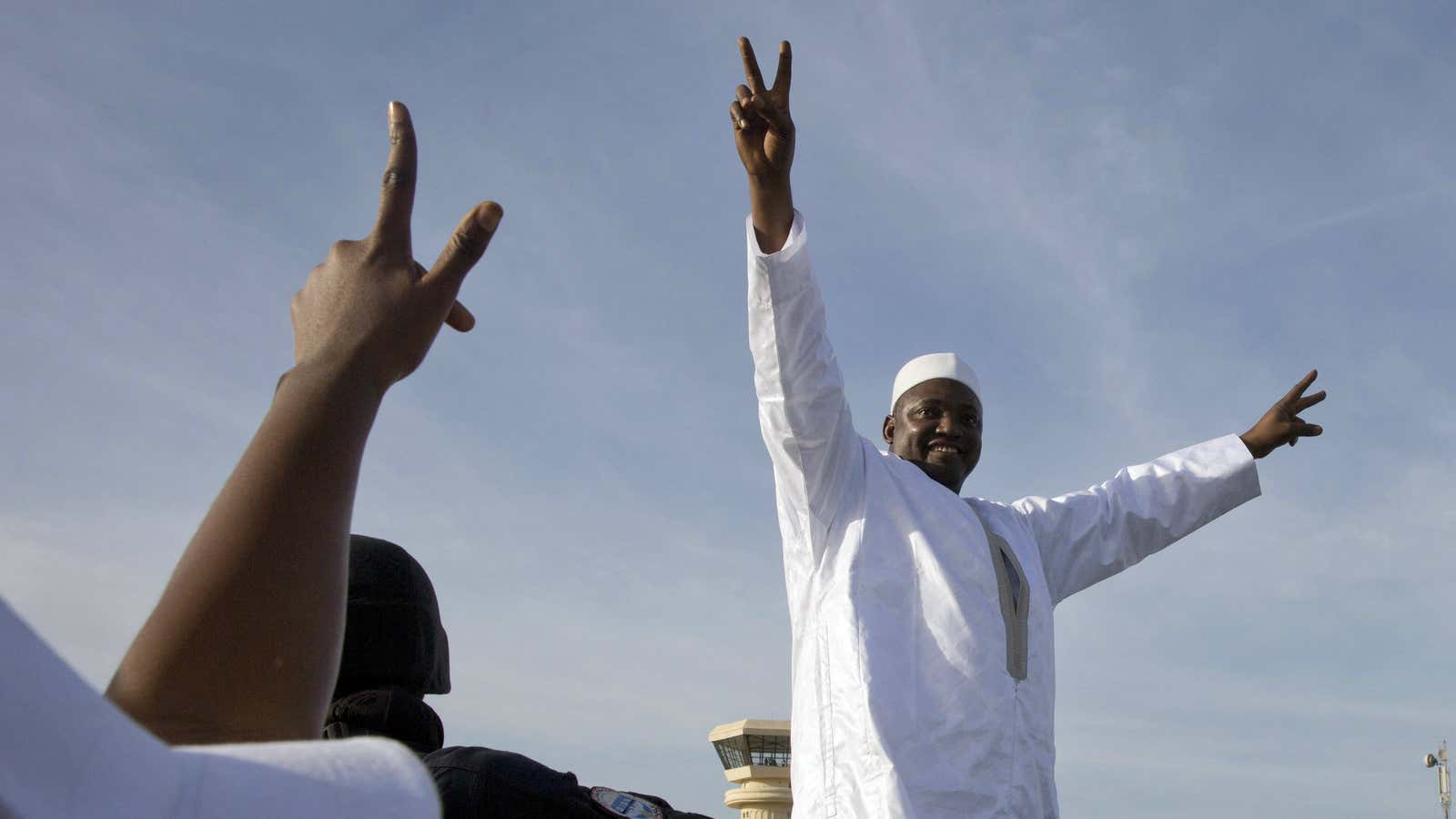Adama Barrow, The Gambia’s new president, has already started reversing some of the more authoritarian policies of his predecessor Yahya Jammeh, less than a month after taking office.
In his first major foreign policy decision, Barrow’s administration confirmed that Gambia will remain a member of the International Criminal Court (ICC), overturning Jammeh’s decision to withdraw from the tribunal last October. Jammeh had cited the court’s focus on prosecuting mainly African leaders as a reason for the withdrawal. Several other African countries, including South Africa, Uganda, Namibia, and Kenya, have criticized the court for similar reasons.
In a statement issued on state media, the new government expressed its commitment ”to the promotion of human rights,” and to “the principles enshrined in the Rome Statue of the International Criminal Court.”
Barrow’s decision to remain the ICC is consistent with his campaign promise to create a “democratic environment” in the tiny West African nation, following 22 years of Jammeh’s autocratic rule. Gambian police have also started investigating killings and disappearances that took place during Jammeh’s presidency, and are encouraging Gambians to file reports of missing persons, Reuters reports.
Barrow’s journey to becoming president was difficult and at times uncertain. Despite winning presidential elections on Dec.1 last year, Barrow needed extensive global pressure, including a military intervention by the Economic Community of West African States (ECOWAS), to convince Jammeh to step down. While Barrow focuses on reversing his predecessor’s isolationist policies, it remains unclear if Jammeh, currently in exile in Equatorial Guinea, will be prosecuted. In addition to allegations of human abuses during his rule, the former president also faces accusations of financial mismanagement by the new administration, including emptying state coffers before leaving the country.
